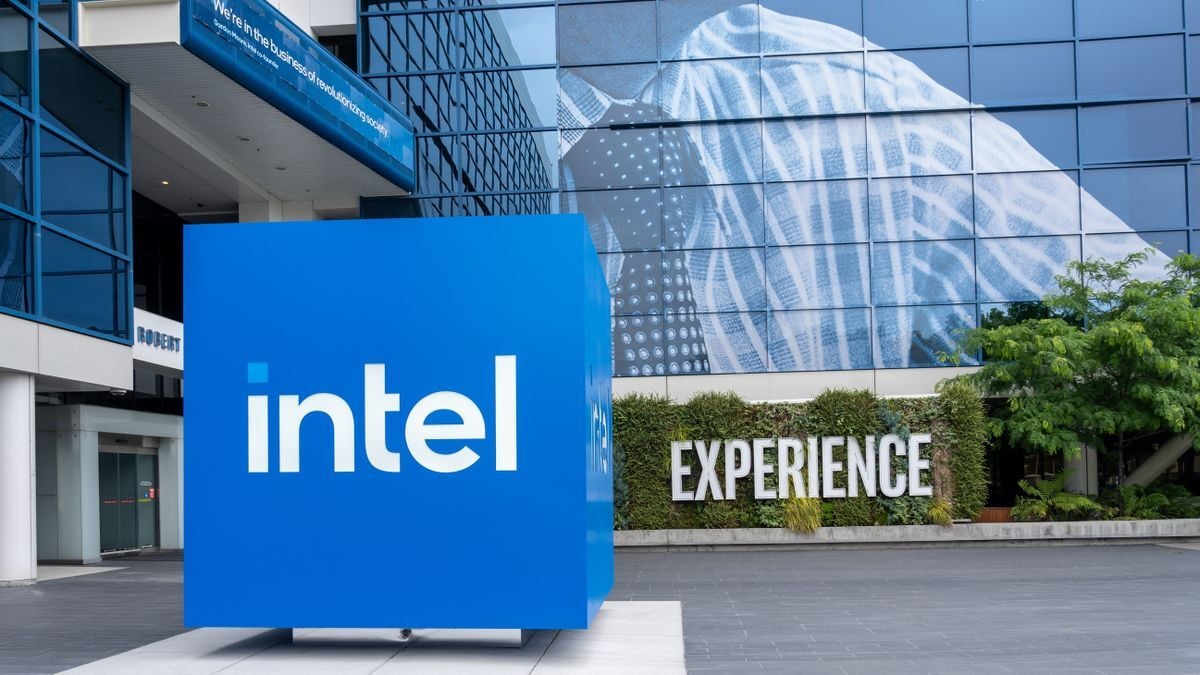Intel’s stock dropped around 30% overnight, shaving some $39 billion from the company’s market capitalization since rumors of a pending layoff first emerged. The devastating results come after the chip giant reported a loss for the second quarter, complained about yield issues with the Meteor Lake CPU, provided a modest business outlook for the next few quarters, and announced plans to lay off 15,000 people worldwide.
When the NYSE closed on July 31, Intel’s market capitalization was $130.86 billion. Then, a report about Intel’s massive layoffs was published, and the company’s market capitalization dropped sharply to $123.96 billion on August 1. Following Intel’s financial report yesterday, the company’s capitalization dropped to $91.86 billion. Essentially, Intel has lost half of its capitalization since January. As of now, Intel’s market value is a fraction of Nvidia’s worth and less than half of AMD’s.
As Intel’s actions look rather desperate, analysts believe that Intel’s challenges are existential. “Intel’s issues are now approaching the existential,” Stacy Rasgon, an analyst with Bernstein, told Reuters.



Sure, one share is one vote, but uh that means that whoever has the most shares wins the vote. IE: one or two very wealthy individuals or groups votes count for as much as potentially millions of other people.
The average working class joe investor basically never has the power to really influence anything.
There are also tons and tons of different kinds of shares and different kinds of voting power, and often there are setups that basically mandate some particular entity always has a significantly large portion of shares.
Basically, its not democratic at all, unless you subscribe to the ‘some pigs are more equal than other pigs’ kind of democracy.
EDIT: A metaphor one can use is killstreaks in COD vs TF2s randomized damage.
In the long run, given a set of purely equally skilled players, CODs kill streak mechanic will functionally randomly choose certain players and elevate their score higher and higher. A positive feedback loop. You end up with a very uneven distribution of scores because mild success is rewarded with wild success.
Whereas in the same situation with TF2, the semi randomized damage across players of equal skill basically would result in a much more even scattering of overall player scores.
Capitalism rewards you more the more money you have, and the more money you have, the easier it is to make even more money, which leads to the haves and the have nots.
In a Co-Op business model, by contrast, its often one person, one vote. There are barely any of these in the US though… we love our entrenched wealth divide between those bastard wealthy asshats and all of us temporarily embarrassed millionaires who will get rich one day.
Those small handful of people also want to make as much money as possible though, so typically their goals will align with yours as a shareholder.
Not if they disagree with a business strategy on profit potential, moral/ethical ramifications, debt management, buying out another business, doing a stock split or stock buyback, where to source a needed material or service from, whether or not to massively raise executive compensation, environmental concerns, or if they’re going to get fucked by a hostile takeover, or being acquired by a private equity firm, maybe they do want to outsource some part of this business or spin off a part, maybe they don’t…
You say that as if its just always immediately obvious to everyone what the correct path is, and that the primary focus of that path should be to maximize profit, which in and of itself is a bad assumption on its face and is also a matter of contention: do you want to keep doing bandaid solutions to ensure short term profitability, or do you want to cut back on profitability for a year to shore up your market position or develop a new branch of the business, or engage in a capital intensive plan that will likely guarantee profit in the long term?
Businesses are a bit more complicated than ‘the richest guys always agree and always know how to make the mostest money and they would never ever have conflicting opinions or interests with me!’